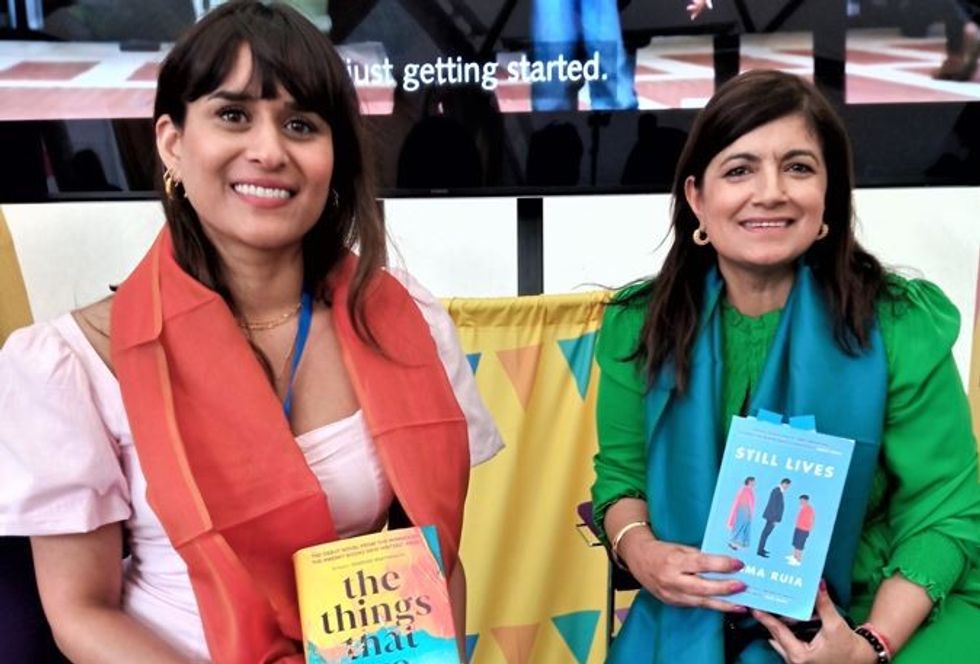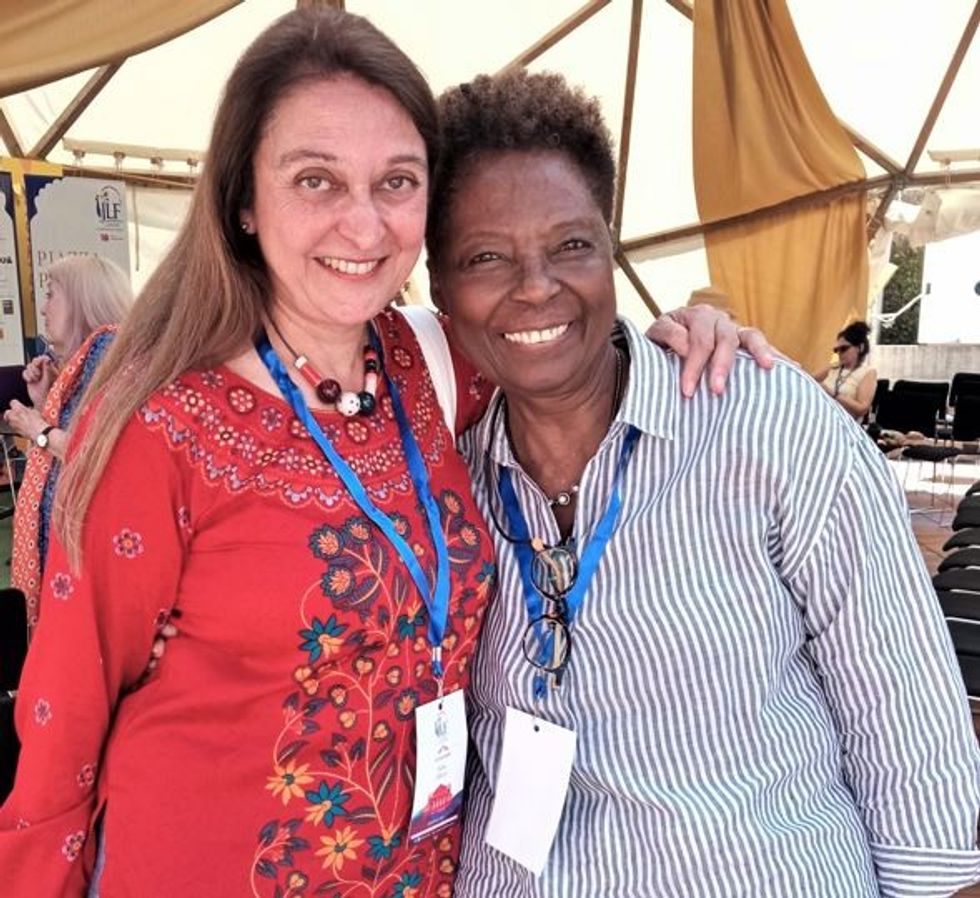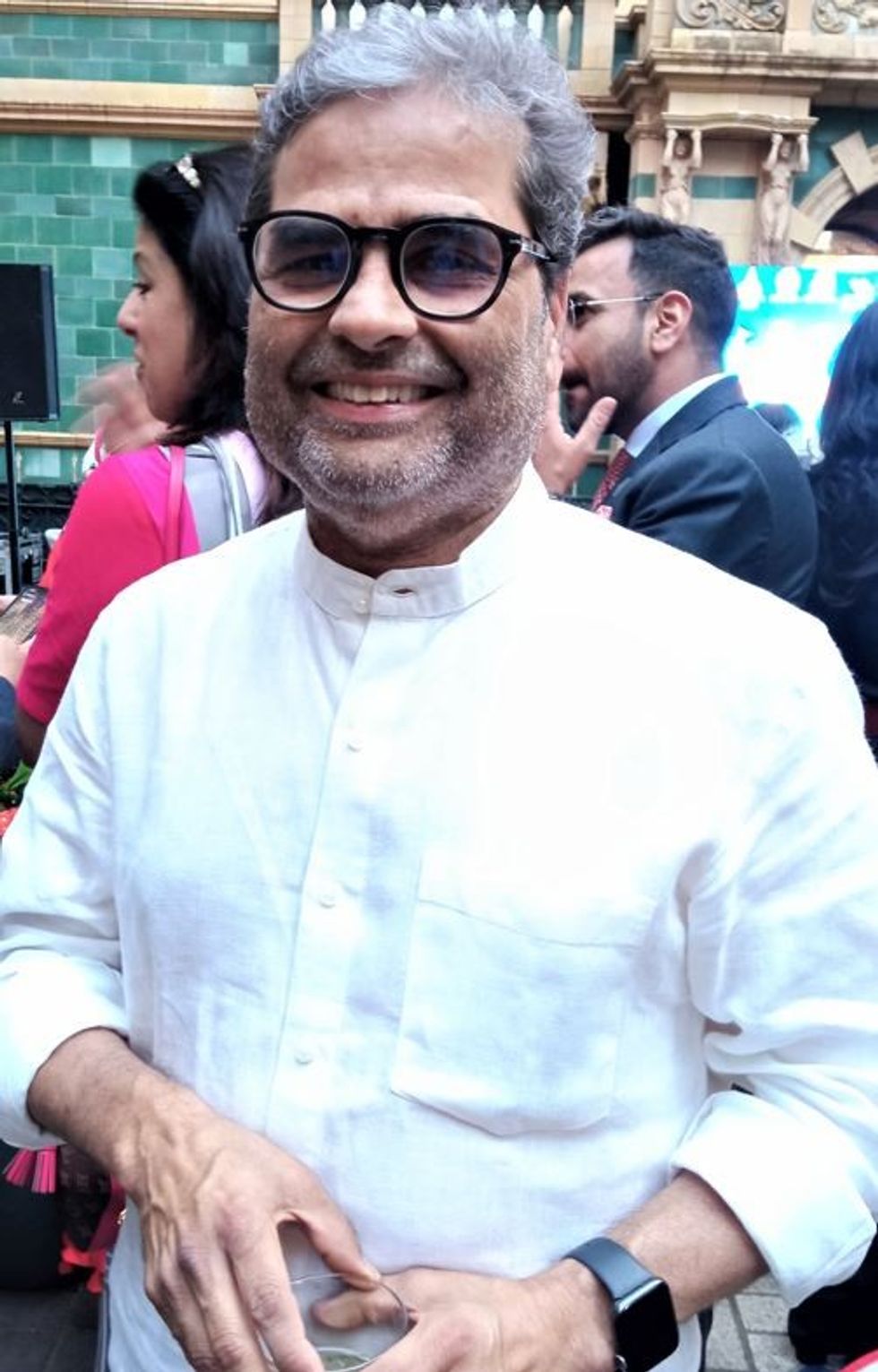If you are fond of books – and Eastern Eye readers seem to love them – then attending an event like the Jaipur Literary Festival (JLF) at the British Library is a little like a child being let loose in a chocolate factory.
There were a total of 35 sessions last weekend – 20 last Saturday (10) and 15 on Sunday (11). But it is often hard to make a choice because three sessions take place at the same time. I attended six on the first day, the maximum possible, and five on the second – plus the inaugural address last Friday (9), that included a discussion on ‘Myth and Memory’ between Shashi Tharoor and Amish Tripathi.
The best joke I heard during JLF came from the Oxford mathematician Marcus du Sautoy, who revealed he loved prime numbers so much that he was minded to name his twin daughters “41 and 43” but the idea was cancelled by his wife. So here’s my diary of the weekend at the festival:
Last Saturday
In the first session on Agatha Christie, three authors, including the Bollywood director Vishal Bhardwaj, were in conversation with the British Asian novelist, Vaseem Khan, newly elected chair of the Crime Writers’ Association in the UK.
Vishal is well known for his Hindi-film adaptations of Shakespeare – Maqbool (2003) from Macbeth, Omkara (2006) from Othello, and Haider (2014) from Hamlet. I remember at the Cannes Film Festival, lead star Ajay Devgn announcing that the Hindi script of Omkara was “so good that it is even better than the original”.
Now, Vishal had turned the 1931 Christie novel, The Sittaford Mystery, into a six-part series for Indian TV. It is not one of Christie’s best-known works, but Vishal said he was greatly taken with the character of Miss Emily Trefusis. When her fiancé, James Pearson, is accused of killing his uncle, Captain Trevelyan, she sets out to prove his innocence. Vishal has transposed the Dartmoor location to a hill station in the Himalayas, with Emily becoming “Charlie Chopra”.

Christie offered a “juicy genre”, Vishal told the audience, adding that he was put under pressure to cast a star for the lead role of Charlie Chopra, “but I have taken a new girl (Wamiqa Gabbi)”. The adaptation of the Christie novel won’t be a one-off, added Vishal. “I’m in love with her work now. I really enjoyed doing this series, and creating this character. I will take it forward and we will keep making (more adaptations).”
The next session was devoted to reviving the novels of Kamala Markandaya, who was born in Mysore in south India in 1924, came to England in 1948 to pursue her journalistic writing, married an Englishman, and died in 2004. Her daughter, Kim Oliver, talked about her mother’s work, including Nectar in a Sieve which first came out in 1954 and is being republished by Rosemarie Hudson of Hope Road.
I came home and found I had at least two of Markandaya’s Indian imprints – A Handful of Rice and Possession – which I had bought for `40 (38p) and `45 (43p), respectively. I have a feeling I have more of her novels, set among India’s dispossessed, that belonged to my late father. It’s great that Rosemarie, who is passionate about publishing, is bringing Markandaya to a new generation of readers.
It was good to hear authors Hafsa Zayyan and Neema Shah discuss the Uganda Asian expulsions of 1972. Their novels, We Are All Birds of Uganda and Kololo Hill, were declared joint winners of Eastern Eye’s Arts, Culture, Theatre Awards (ACTA) for best fiction earlier this year (the prize was handed over by Amish Tripathi).

At the suggestion of Sanjoy K Roy, the producer of JLF, I went to his session discussing ‘Innovation, Marketing and the Matrix of Succession’ with two Parsi businessmen, Lord Karan Bilimoria and Naushad Forbes, former presidents of the CBI [Confederation of British Industry] and the CII [Confederation of Indian Industry] respectively.
The next session proved frustrating. I had looked forward to hearing the Oxford historian, Nandini Das, talking about her book, Courting India: England, Mughal India and the Origins of Empire, with William Dalrymple, but the speakers weren’t “miked up” as they moved around on the stage and so they were barely audible from the back of the Pigott Theatre. One important lesson from JLF is that the timings are pretty relentless, with only a 15-minute gap between sessions. So it’s important to carry a packet of energy giving biscuits with you. The entertaining session on PG Wodehouse, featuring the Indian high commissioner Vikram Doraiswami, was familiar territory.
Last Sunday
Roger Highfield, a former colleague who was science editor of the Daily Telegraph, interviewed Du Sautoy in a session last Sunday called ‘The Music of the Primes’. Marcus has written a play, The Axiom of Choice, about the French mathematician André Weil (1908- 1998), who had spent a stretch in prison in France and also lived in India where the playwright is taking his play.
“The reason I’m taking it to India is that André Weil spent a long time in India before he came back to France,” explained Marcus. “And he got very influenced by the Bhagavad Gita, and the ideas of Indian philosophy. He learnt Sanskrit.” In 2007 I remember seeing a play at the Barbican called A Disappearing Number, based on the life of the Indian mathematics genius, Srinivasa Ramanujan, when Marcus revealed he had been the consultant. The cast included the late Paul Bhattacharjee.
Highfield intervened: “Before we take another audience question… Ramanujan is such a fascinating character. And just because he intuited the proofs without going through the classical methods that the likes of (GH) Hardy (followed)…just explain a little bit about his little black book and why that’s such an extraordinary document.”
Sitting next to me was Prof Sir Venkatraman Ramakrishnan, the Nobel laureate, who promoted The Man Who Knew Infinity, the 2015 film on Ramanujan starring Dev Patel, when Venki was president of the Royal Society.

Marcus said: “There is a great deal about Ramanujan in my book (The Music of the Primes: Why an Unsolved Problem in Mathematics Matters). There’s actually an interesting thing about Indian mathematics. The way that it was written was very often in poetry form.” I had to follow Venki as he slipped out because he was taking his own session, ‘Decoding creativity’, with the poet, Alice Oswald.
Shashi Tharoor, always a big draw, spoke eloquently about his new biography of Bhimrao Ramji Ambedkar, the man who wrote the Indian constitution. I also found it fascinating listening to Reshma Ruia and Jyoti Patel talking about their respective novels, Still Lives and The Things That We Lost, and writing by south Asian women in the UK.
In a session, ‘History: Then and Now’, Satham Sanghera, who was awarded Eastern Eye’s best nonfiction ACTA for Empireland, spoke to the historian Yasmin Khan. He praised the National Trust (which won Eastern Eye’s ACTA for Community Engagement) for shedding light on the colonial links of its properties. Sathnam swore as he raged against the prime minister: “You have got this idea that history shouldn’t be rewritten, which I think Rishi Sunak has himself said, ‘Oh, we shouldn’t try to rewrite history.’ That is exactly what ******* historians do. They rewrite history.”
He added: “I’ve written basically a guide to the British Empire for children (Stolen History: The truth about the British Empire and how it shaped us). I’m very aware that the Empire is the most toxic subject in the world.


















